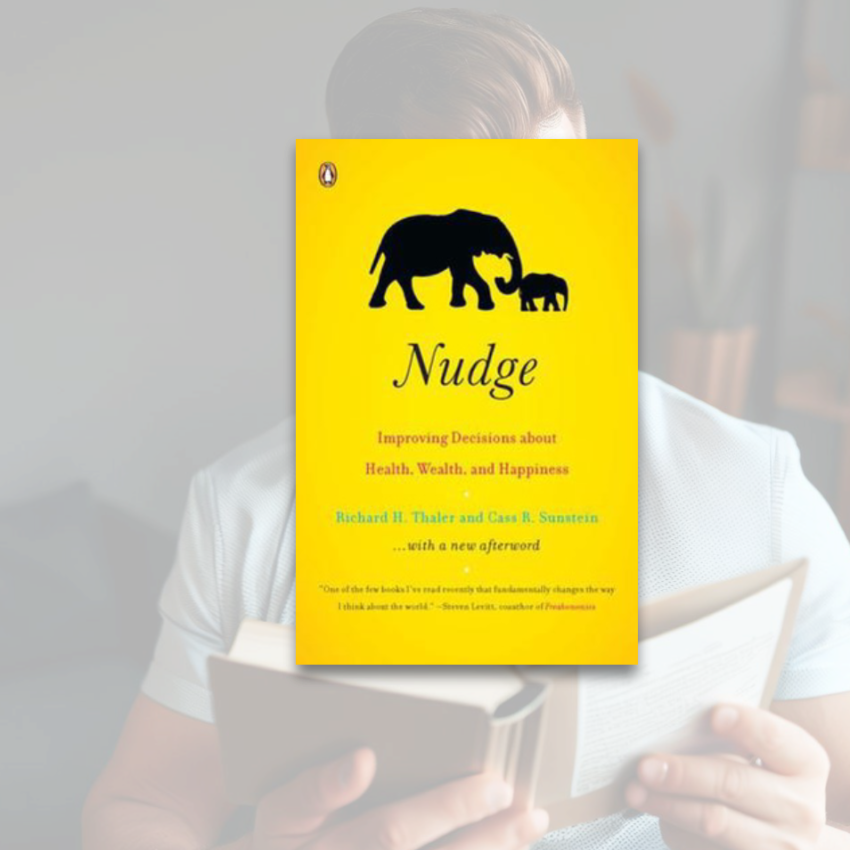“Libertarian Paternalism” is a phrase that sounds more like some form of new-age parenting than a philosophy for governance, but in Nudge: Improving Decisions About Health, Wealth, and Happiness that is exactly what the writers lay out. The idea is to present a form of governance and policymaking in which the people retain the right to make any choice they like (that’s the “libertarian” part) but with policymakers providing some form of guidance (that’s the “paternalism” part).
The authors present the concept of “choice architecture” to describe the way in which options are presented, allowing individuals to make the best choice for their personal needs. The idea makes perfect sense if we believe people are typically good at knowing what is best for themselves. As it turns out, we usually aren’t, and that’s where the idea of the Nudge comes in.
Research has found we are almost always unrealistically optimistic about an outcome. One of the most popular games in the Texas Lottery is the Pick 3. Because there are approximately 1,000 possible combinations that could be selected for the game every day, your chances of winning are roughly 1 in 1000 for every ticket you buy. In Fiscal Year 2022, there were nearly 273 million tickets sold – all of whom had some reasonable belief they had chosen that one winner.
People also have a tendency to settle for the status quo even when change is beneficial. Every subscription company out there makes a fortune on their 30-day free trial because that’s about how long it takes for us to settle into a subscription and forget to cancel it.
We are also typically susceptible to “framing” or the way things are presented to us. If we are told that four out of five dentists approve a certain kind of toothpaste, we are inclined to think the fifth guy probably shouldn’t have graduated from dental school. In contrast, if we were told one of the dentists surveyed didn’t like the toothpaste, then we begin to wonder what he knows that the others don’t.
The last reason the authors give us for justifying nudges in our policymaking is that people typically have a loss aversion. We are more inclined to keep what we have than take a risk that could potentially result in something better. For most people not losing is preferable to winning.
This loss aversion aspect is probably the most interesting because it highlights that even though most of us overestimate our ability to win, we are still not confident enough to risk losing the status quo. We are more inclined to frame the decision in our minds as potentially giving up what we have instead of gaining what we would like to have. For that reason, our unfounded confidence is often inconsequential.
As the City Administrator in Mount Vernon, I once worked with a landman to secure 86 new easements to replace one-third of the sewer lines. The project was difficult because several residents would rather avoid losing a few feet of their property than allow us to give them new, more reliable infrastructure – even when the existing pipes had been in the ground for 75 years. I wish I had known some of the Nudge strategies back then.
The book continues to describe a ton of strategies for leveraging what we know about the general population to guide them toward better decisions without mandating good choices. If you are in a managerial role of any kind – or if you just want to know when you are being manipulated – I would encourage you to check out Nudge: Improving Decisions About Health, Wealth, and Happiness.
If you read that one and still want more, take a look at:
- Thinking Fast and Slow by Daniel Kahneman
- Misbehaving: The Making of Behavioral Economics by Richard Thaler
- Predictably Irrational: The Hidden Forces That Shape Our Decisions by Dan Ariely
- The Upside of Irrationality: The Unexpected Benefits of Defying Logic at Work and Home by Dan Ariely
- Drive: The Surprising Truth About What Motivates Us by Daniel Pink

